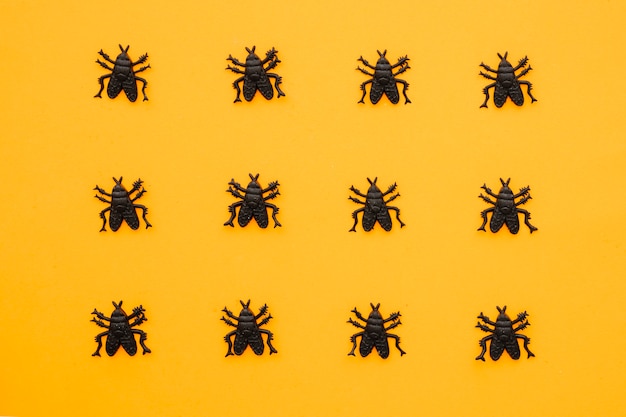Amazing Spider Facts – Unraveling the Mysteries of these Eight-legged Creatures

Spiders are amazing architects, building intricate webs to catch their prey.
Did you know that spiders can produce silk up to eight times stronger than steel?
Despite their reputation, most spiders are harmless and even beneficial to humans.
Spiders can be found on every continent except for Antarctica.
Some spiders have the ability to change their color to blend in with their surroundings.
The average spider can consume up to 2,000 insects in a year.
Spiders have been around for over 300 million years, making them older than dinosaurs.
A spider’s legs are covered in tiny hairs that help them detect vibrations in their web.
The world’s largest spider species, the Goliath birdeater, can have a leg span of up to 30 centimeters.
Male spiders often risk their lives when approaching a female for mating.
The jumping spider is capable of leaping up to 50 times its body length.
The silk produced by spiders is not only used for webs but also for making egg sacs and creating shelters.
Some spiders have the ability to regenerate lost legs.
Female spiders are generally larger and stronger than males.
Spiders play a vital role in ecological balance by controlling populations of harmful insects.
Contrary to popular belief, most spiders have poor eyesight and rely on other senses to navigate their surroundings.
Australia is home to some of the most venomous spiders in the world, including the Sydney funnel-web spider.
Amazing Spider Facts – Unraveling the Mysteries of these Eight-legged Creatures part 2
The black widow spider gets its name from its tendency to cannibalize males after mating.
Spiders have a unique method of breathing through tiny openings called spiracles.
Despite their small size, spiders are among the most diverse groups of organisms on the planet.
Some spiders can survive underwater by creating air bubbles around their bodies.
The majority of spider species are solitary creatures, only coming together briefly for mating.
The orb-weaving spider can create a web up to 2 meters in diameter.
The silk produced by spiders is not only incredibly strong but also biodegradable.
In some cultures, spiders are considered symbols of good luck and fortune.
The Brazilian wandering spider is known for its aggressive behavior and highly potent venom.
Spiders molt their exoskeletons several times throughout their lives to allow for growth.
Some spiders have evolved to have specialized body parts for capturing specific prey.
The spiny orb-weaver spider has a distinctive pattern on its back that resembles a smiley face.
It is estimated that there are over 40,000 different species of spiders worldwide.
The female black widow spider is known for its red hourglass marking on its abdomen.
Some spiders have been observed exhibiting complex mating rituals and courtship dances.
The peacock spider is famous for its vibrant colors and elaborate mating displays.
The cobweb spider creates irregularly shaped webs that catch prey through sheer luck and persistence.
Spiders have an internal hydraulic system that allows them to move their legs with precision and agility.
The trapdoor spider creates a camouflaged burrow with a hinged lid to surprise and capture unsuspecting prey.
The camel spider is not actually a spider but a type of solifugid, also known as a sun spider or wind scorpion.
Some spiders have venom powerful enough to cause temporary paralysis in their prey.
The arachnid class, which includes spiders, scorpions, and ticks, is one of the largest in the animal kingdom.
Spiders have been used in medical research to study neurotoxins and develop new pain medications.
The cellar spider, also known as the daddy long-legs, has incredibly long and thin legs compared to its body.
Orb-weaving spiders often consume their old webs to recycle the proteins and conserve energy.
The golden silk orb-weaver spins a web that reflects golden sunlight, earning it the nickname golden silk spider.
Some spiders have the ability to glide through the air using strands of silk, a behavior known as ballooning.
Spiders have inspired numerous works of art, literature, and even movies due to their mysterious and captivating nature.

